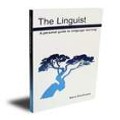Back in 1971 when I was first assigned to the Canadian Embassy in Tokyo I did not know what to expect. But I was determined to become fluent in Japanese, as I had promised my employer. My Chinese learning experience had allowed me to greatly improve my language learning methods and confidence. When I moved to Japan, I took these methods with me. I made a commitment to learn Japanese on my own, within six months. I would make every necessary sacrifice to achieve a breakthrough during this period. If I succeeded I would then be able to live in Japanese, unlike the majority of Westerners who lived in English.
When my wife and I moved to Japan, we had one child and another on the way. My work at the Embassy was largely in English. Therefore I had to work hard to surround myself with a Japanese language environment to learn from. Furthermore, in Japan I did not have the luxury of studying the language full time at my employer's expense, as had been the case in Hong Kong, nor had I studied the language in school as had been the case for French. I had to do it on my own while working full time.
Since the majority of foreigners were comfortable working and living in English, I knew that I had to force myself to live and work in Japanese as early as possible in order to avoid falling into the comfortable routine of "getting by" in English. I had gained some initial exposure to Japanese while still in Hong Kong from good friends among the members of the Japanese consulate who were studying Chinese. One Gaimusho (Foreign Affairs) official was Mr. Koichi Kato, who subsequently became a leading Liberal Democratic politician. But my initial exposure to Japanese in Hong Kong was just a foretaste to get me interested.
My first six months of living in Japan formed my period of concentrated study, my make-or-break period. I had to find my own learning material and continue to develop my own language learning methods. I relied on bookstores to find content that I needed. This content was not as good as the content available for Chinese language study, and was certainly a far cry from the material that is available for studying any language today via the Internet.

